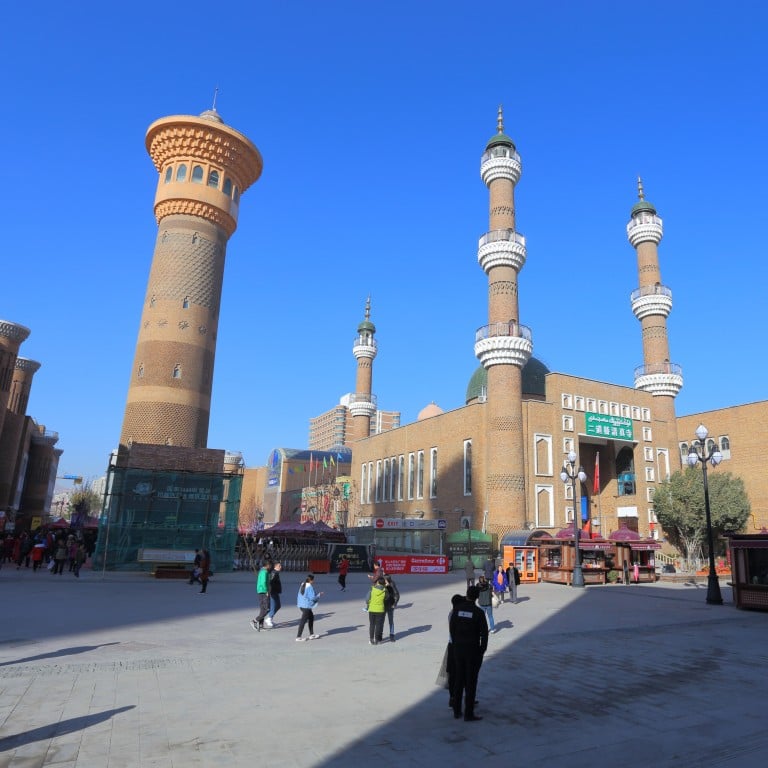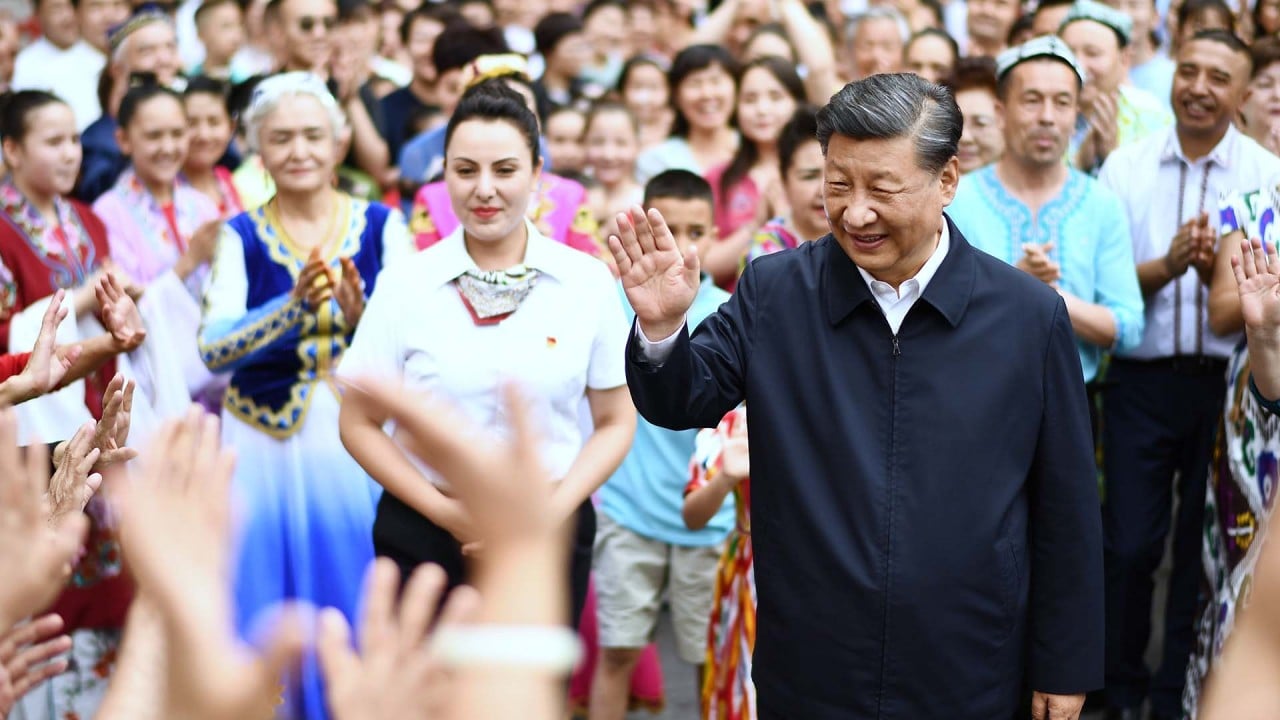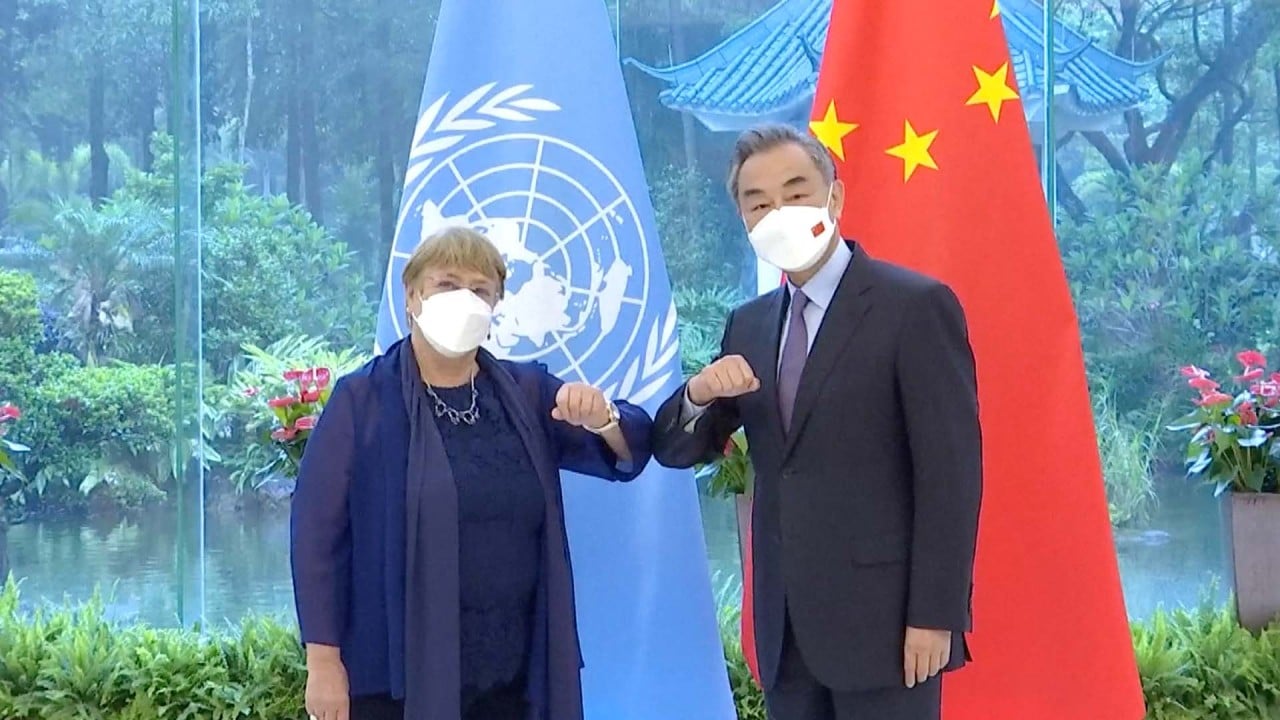
Use the law to tackle terrorism in Xinjiang, China’s security chief says
- Chen Wenqing urges authorities to ‘normalise’ counterterrorism efforts and abide by ‘scientific’ legislation in combating extremism
- Chen made his first trip to the region since taking up his new role in October
“[Authorities should] resolutely combat terrorist and extremist crimes in accordance with the law,” Chen said on his first visit to the region since becoming head of the party’s Central Political and Legal Affairs Commission late last year.
“[We should] strengthen the construction of supporting laws and regulations, and promote the resolution of enforcement and judicial issues at the institutional level,” he said, stressing the need for a “scientific” approach to legislative tools.
“[We should promote] strict law enforcement and skilfully use legal tools to maintain stability and combat crime.
“[We should] advance impartial justice, enabling people of all ethnicities to have faith in the rule of law.”
He also said counterterrorism efforts should be “normalised” and authorities should guide people of all ethnicities to consciously build up “national consciousness, civic consciousness, and legal consciousness”.
As head of the commission, he oversees the country’s police, prosecutors, judges, prison and top spy agencies. Before his October promotion, Chen was the country’s state security minister.
But Beijing has denied those accusations and insisted that security measures in the region are necessary to clamp down on terrorist attacks.
China introduced its first counterterrorism law in 2015.
The following year Xinjiang issued specific directives for implementing the legislation in the region. Regional authorities also released regulations on “deradicalisation” efforts for the region in 2017.
Beijing maintains that there have been no terror attacks in Xinjiang since 2017. But from 1990 to 2016, there were “thousands of terrorist attacks” in the region, resulting in the death of “hundreds of innocent people and police officers”, according to Chinese officials.
Chen Quanguo was one of a number of Xinjiang officials sanctioned by the United States in 2020 over “serious human rights abuses”.
Human rights has remained an issue on the diplomatic agenda for many developed countries in their meetings with Chinese officials.
US Secretary of State Antony Blinken raised the matter during his two-day visit to Beijing, which ended on Monday.



